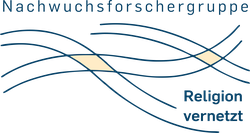Representative Mosques and networking
A study of the relationship between the social networks of mosque communities and mosque-building projects in North Rhine-Westphalia

Background
Islam is the largest minority religion in Germany, a fact that has led to the development of about 2,500 mosques, most of which were built in North Rhine-Westphalia. They are considered religious and social centres of Muslim communities which often offer various activities. For a long period of time, the mosques were located in cellars or garages and remained invisible to the public. However, since the 1990s, a growing number of Muslim communities has been building representative mosques with cupolas and minarets, often bigger than the former makeshift mosques.
This advancement of Islam from the private to the public sphere frequently triggers opposition and conflicts on a local level, varying from city to city. In the public discussion, the emergence of representative mosques also provokes fears of religious and ethnic self-segregation. At the same time, the mosque projects lead to high interaction between the respective Muslim community and its urban environment. A closer look at this subject makes clear that the establishment of mosques is not just a topic of urban planning, but also influences local social structures. However, most empirical studies focus on the conflict itself and neglect its long-term impacts. Hence, the primary aim of the dissertation is to examine the relation between a Muslim community's process of becoming representative and its social networks in a city. Therefore my main research questions are:
- Which influence do the social networks (“social capital”) of the mosque community have on the performance in the mosque projects? Do the Muslim communities manage to mobilize support for their concerns?
- Which modes of communication appear during conflict? Who participates in the conflict and what is the motivation?
- What impact does the construction and maintenance of a representative mosque have on the social network of the respective Muslim community? Are there any new ties due to the establishment of the representative mosque which did not exist before? What kind of ties are established between the actors during the process and which potentials do they have for future cooperation?
Context
The establishment of mosques has strong symbolic implications and concerns not only the construction of places of worship, but the visibility of Muslims in German cities in general.
Thus, it is an adequate field to investigate the relationship between migrants and the host society. Architectural visibility and associated conflicts are aspects which seem fruitful in the investigation of migrant organizations and the dynamic of their social networks.
With the focus on the relationships between the Muslim communities and other urban stakeholders, this study puts forward a relational perspective. This approach considers the embeddedness of actors in social networks as a crucial factor for their actions while it simultaneously argues that the action of entities leads to a change of the social networks. The dissertation consequently deals with the interdependency of action and structure in the context of migration.
Method
The present study is based on a qualitative research design. Several case studies are conducted in different cities of North Rhine-Westphalia. To collect data, I carry out expert-interviews with deputies of Muslim communities, churches, neighbourhood associations, administrations and politicians in each examined city. This allows tracing the course of negotiations, positions, motivations and the different relationships between the participating actors. Additionally, an analysis of newspapers and various documents (statutes, city council records, declarations) and active participant observation in council meetings and neighbourhood assemblies help to obtain a comprehensive picture. Lastly, I will carry out an ego-centred network analysis to gain insight into the networks of the Muslim communities.
To answer the research questions, a threefold comparison is made: Basically the social networks of Sunni communities who have established representative mosques in the last few years are investigated and compared, both with each other and with those of Muslim communities in backyard mosques. Finally, I will conduct a before-and-after (the construction of the mosque) comparison for each “representative” Muslim community. This comparative research design will reveal the dynamic of the social networks, as well as identify the local factors affecting the mosque establishment process.

